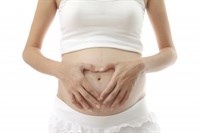
Subscribe & Follow
#AfricaMonth
In the news
Back to natural childbirth

"Have Moms forgotten how to push?" asks Jude Polack natural birth activist and the founder and director of active birthing hospital, Genesis Clinic, Gauteng's only private hospital to be designated a Mother-and-Baby-Friendly maternity facility by the World Health Organisation and UNICEF.
"It might sound obvious, but I don't think many moms-to-be understand what a natural birth really is. If you are confined to your bed and strapped up to monitors for your entire labour, that is not 'natural'. Many hospitals also won't let you eat or drink during labour, restrict your movement, don't let you adopt the position that feels right for you, and limit the number of friends and family you can have in the room for support. This kind of environment breeds fear and feelings of isolation that tend to make labour slower and more painful, with more medical intervention needed.
"The best natural birth, however, is an active one, where the mom follows her own instinctive responses and works with her body. She needs a secure, relaxing environment with good support and the freedom to move around. In an active birth, moms are encouraged to remain mobile and upright and to adopt whichever position they choose. They also eat and drink to strengthen themselves through labour.
"An active birth also lets mom labour at her own pace. Remember that the 1 cm-per-hour dilation average is exactly that - an average; at least half of all women may progress more slowly."
"If you're healthy and are having an uncomplicated pregnancy, you are most likely a candidate for successful natural labour."
Pros for moms
- No surgical recovery time, immediate mobility after the birth, and a shorter hospital stay
- No risk of wound infection, injury to internal organs, or complications from the anaesthetic or epidural
- A lower incidence of postnatal depression
- Labour in future pregnancies may be shorter
- Moms feel capable and empowered
Pros for babies
- Four to six times less likely to suffer from respiratory distress syndrome or fluid in the lungs
- Better and quicker control of body temperature, breathing and heart rate, so there is less call for incubators and oxygen
- Quicker and more effective latching and feeding (breastfeeding has a 75% higher success rate among babies born naturally than among those delivered by C-section)
- Oxytocin released during a natural birth facilitates bonding
- Less colic in the early months
Cons for moms
- Possible perineal damage or tearing, which could require a stitch, or in severe cases, surgical repair - daily perineal massaging from week 34 can help prevent this
- Loss of vaginal and pelvic floor muscle tone can lead to urine leaks, but regular Kegel exercises after birth help restore these muscles
Cons for babes
- Risk of oxygen deprivation if the umbilical cord is constricted, or if there are other problems during labour and delivery - it is essential that someone trained in delivering babies is on hand during a natural birth to ensure that nothing goes wrong
- Possibility of physical trauma, such as bruising, from passing through the birth canal










